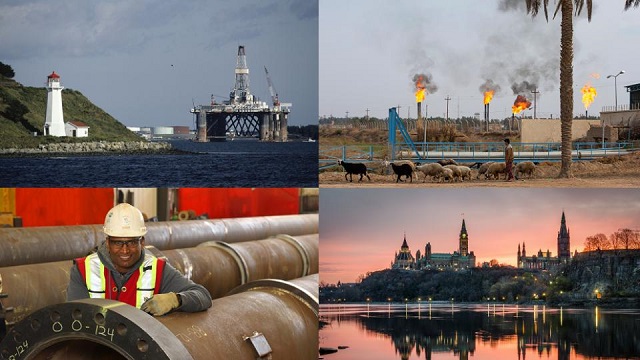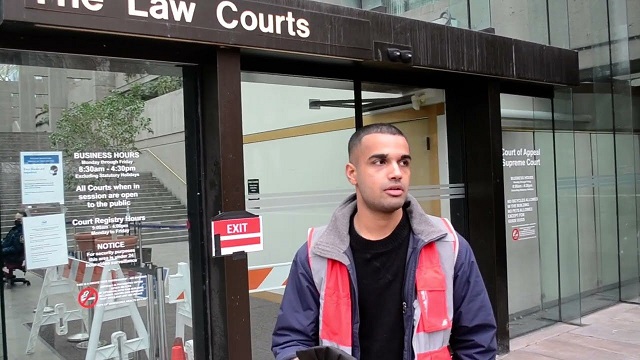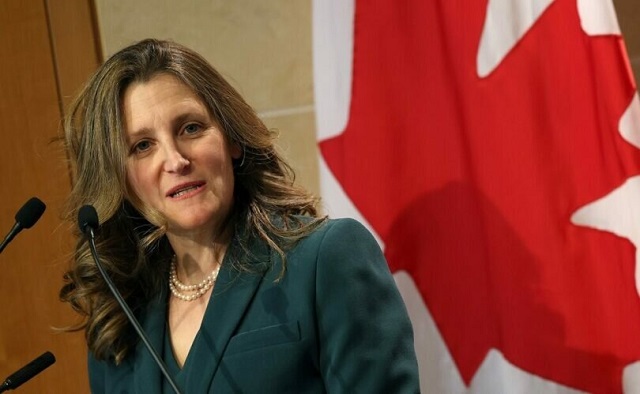Alberta
25 facts about the Canadian oil and gas industry in 2023: Facts 16 to 20

From the Canadian Energy Centre
One of the things that really makes us Albertans, and Canadians is what we do and how we do it. It’s taking humanity a while to figure it out, but we seem to be grasping just how important access to energy is to our success. This makes it important that we all know at least a little about the industry that drives Canadians and especially Albertans as we make our way in the world.
The Canadian Energy Centre has compiled a list of 25 (very, extremely) interesting facts about the oil and gas industry in Canada. Over the next 5 days we will post all 25 amazing facts, 5 at a time. Here are facts 16 to 20.
The Canadian Energy Centre’s 2023 reference guide to the latest research on Canada’s oil and gas industry
The following summary facts and data were drawn from 30 Fact Sheets and Research Briefs and various Research Snapshots that the Canadian Energy Centre released in 2023. For sources and methodology and for additional data and information, the original reports are available at the research portal on the Canadian Energy Centre website: canadianenergycentre.ca.
16. Employment and wages in the oil and gas sector remain high
In 2021, the oil and gas sector directly employed 147,371 Canadians. The number of direct jobs in the sector rose from 158,483 in 2009 to 185,393 in 2014, then fell to 134,939 in 2016, the result of the sharp decline in energy prices, before rising to 160,379 in 2019 as energy prices gradually recovered. The onslaught of COVID-19 in 2020 saw oil and gas sector jobs fall back to 135,475, before recovering to 147,371 in 2021. The average salary of a worker in the Canadian oil and gas sector in 2021 was $133,293. The average salary for a worker in the sector had risen from $103,448 in 2009 to $133,776 in 2015, before leveling off to $129,716 in 2019 due to the energy price slump. However, between 2009 and 2021, the average annual wage of a worker in the Canadian oil and gas sector increased by nearly 29 per cent.

Source: Statistics Canada
Social and Governance
17. Women’s employment in Canada’s oil and gas sector is recovering
The number of females employed in the oil and gas sector reached a high of 42,440 in 2013, dipping to 30,285 in 2020 due to COVID-19, and then recovering somewhat to 33,068 in 2021. Between 2009 and 2021, the average wage for a female worker in the Canadian oil and gas industry increased by over 53 per cent.

Source: Statistics Canada
18. Diversity increasing in the oil and gas sector
Between 2009 and 2021, workers in the Canada’s oil and gas sector who identified as Indigenous increased by nearly 17 per cent. Between 2009 and 2021, the average salary of an Indigenous person employed in Canada’s oil and gas sector increased by over 39 per cent.

Source: Statistics Canada
19. More new Canadians working in the oil and gas sector over the long term
In 2021, 24,931 immigrants were directly employed in the Canadian oil and gas sector. The number of immigrants employed in the oil and gas industry reached 28,469 by 2014, declining to 21,622 in 2016 before recovering to 26,569 in 2019. Between 2009 and 2021, immigrant employment in the Canadian oil and gas sector increased by over 9 per cent. Between 2009 and 2021, the average wage and salary of an immigrant employed in the Canadian oil and gas sector increased by nearly 25 per cent.

Source: Statistics Canada
Carbon Capture, Utilization and Storage (CCUS)
20. Carbon Capture, Utilization and Storage (CCUS) growing across the world
At the end of 2022, there were 65 commercial carbon capture, utilization and storage (CCUS) projects in operation globally capable of capturing nearly 41 million tonnes per annum (mtpa) of CO2 across various industries, including the oil and gas sector. There are another 478 projects in various stages of development around the world that will be capable of capturing roughly another 559 mtpa of CO2. These projects are in various stages of development: some are at the feasibility stage while others are in the concept and construction phases. If all projects move ahead as scheduled, by 2030 it is estimated that nearly 500 CCUS projects could be operating worldwide, having the ability to capture 623.0 mtpa of CO2. In fact, between 2023 and 2030, global carbon capture capacity could grow from 43.5 mtpa to 623.0 mtpa, an increase of over 1,332 per cent.

Source: Derived from Rystad Energy
CEC Research Briefs
Canadian Energy Centre (CEC) Research Briefs are contextual explanations of data as they relate to Canadian energy. They are statistical analyses released periodically to provide context on energy issues for investors, policymakers, and the public. The source of profiled data depends on the specific issue. This research brief is a compilation of previous Fact Sheets and Research Briefs released by the centre in 2023. Sources can be accessed in the previously released reports. All percentages in this report are calculated from the original data, which can run to multiple decimal points. They are not calculated using the rounded figures that may appear in charts and in the text, which are more reader friendly. Thus, calculations made from the rounded figures (and not the more precise source data) will differ from the more statistically precise percentages we arrive at using the original data sources.
About the author
This CEC Research Brief was compiled by Ven Venkatachalam, Director of Research at the Canadian Energy Centre.
Acknowledgements
The author and the Canadian Energy Centre would like to thank and acknowledge the assistance of an anonymous reviewer for the review of this paper.
Alberta
Former senior financial advisor charged with embezzling millions from Red Deer area residents

News release from Alberta RCMP
Former senior financial advisor charged for misappropriating nearly $5 million from clients
On April 4, 2024, the RCMP’s Provincial Financial Crime Team charged a Calgary resident for fraud-related offences after embezzling millions of dollars from his clients while serving as a senior financial advisor.
Following a thorough investigation, the accused is alleged to have fraudulently withdrawn funds from client accounts and deposited them into bank accounts he personally controlled. A total of sixteen victims were identified in the Red Deer area and suffered a combined loss of nearly $5 million.
Marc St. Pierre, 52, a resident of Calgary, was arrested and charged with:
- Fraud over $5,000 contrary to section 380(1)(a) of the Criminal Code; and,
- Theft over $5,000 contrary to section 344(a) of the Criminal Code.
St. Pierre is scheduled to appear in Red Deer Provincial Court on May 14, 2024.
“The ability for financial advisors to leverage their position to conduct frauds and investment scams represents a significant risk to the integrity of Alberta’s financial institutions. The investigation serves as an important reminder for all banking clients to regularly check their accounts for any suspicious activity and to report it to their bank’s fraud prevention team.”
- Sgt. John Lamming, Provincial Financial Crime Team
The Provincial Financial Crime Team is a specialized unit that conducts investigations relating to multi-jurisdictional serious fraud, investments scams and corruption.
Alberta
Political parties will be part of municipal elections in Edmonton and Calgary pilot projects

Strengthening Alberta’s local elections
Alberta’s government is introducing legislation to ensure Albertans can rely on transparent, free and fair elections, and municipally-elected officials have clearer accountability measures.
In a democratic society, Albertans expect their local elections to be free and fair, and their elected officials to be held to account by clear rules that govern their local councils. The Municipal Affairs Statutes Amendment Act proposes amendments to the Local Authorities Election Act (LAEA) and the Municipal Government Act (MGA) to add greater transparency to local election processes and ensure local councils and elected officials continue to remain accountable to the citizens who elected them.
“Our government is committed to strengthening Albertans’ trust in their local governments and the democratic process that elects local leaders. The changes we are making increase transparency for Alberta voters and provide surety their votes will be counted accurately. We know how important local democracy is to Albertans, and we will work with local authorities to protect and enhance the integrity of local elections.”
Local Authorities Election Act
Albertans expect free and fair elections and that’s why it’s important we strengthen the rules that govern local elections. To strengthen public trust in local elections, Alberta’s government will eliminate the use of electronic tabulators and other automated voting machines. All Albertans should be able to trust the methods and results of local elections; requiring all ballots to be counted by hand, clarifying rules and streamlining processes for scrutineers will provide voters greater assurance in the integrity of the results.
All eligible Albertans should be able to vote in local elections without impediment. Alberta’s government will limit the barriers for eligible voters to cast a ballot by expanding the use of special ballots. Currently, special ballots can only be requested for very specific reasons, including physical disability, absence from the municipality, or for municipal election workers. By expanding the use of special ballots, the government is encouraging more voter participation.
Amendments in the Municipal Affairs Statutes Amendment Act would increase transparency in local elections by enabling political parties at the local level. Political parties would be enabled in a pilot project for Edmonton and Calgary. The act will not require candidates to join a political party in order to run for a local or municipal office, but will create the opportunity to do so.
In addition, proposed changes to the Local Authorities Election Act would allow municipalities the option to require criminal record checks for local candidates, thus increasing transparency and trust in candidates who may go on to become elected officials.
Municipal Government Act
The role of an elected official is one with tremendous responsibility and expectations. Changes proposed to the Municipal Government Act (MGA) will strengthen the accountability of locally elected officials and councils. These include requiring mandatory orientation training for councillors, allowing elected officials to recuse themselves for real or perceived conflicts of interest without third-party review and requiring a councillor’s seat to become vacant upon disqualification.
If passed, the Municipal Affairs Statutes Amendment Act will also unlock new tools to build affordable and attainable housing across Alberta. Proposed amendments under the MGA would also create more options for municipalities to accelerate housing developments in their communities. Options include:
- Exempting non-profit, subsidized affordable housing from both municipal and education property taxes;
- Requiring municipalities to offer digital participation for public hearings about planning and development, and restricting municipalities from holding extra public hearings that are not already required by legislation; and
- Enabling municipalities to offer multi-year residential property tax exemptions.
Municipal Affairs will engage municipalities and other partners over the coming months to hear perspectives and gather feedback to help develop regulations.
Quick facts
- The LAEA establishes the framework for the conduct of elections in Alberta municipalities, school divisions, irrigation districts and Metis Settlements.
- The MGA establishes the rules governing the conduct of local elected officials once on council, as well as the overall administration and operation of municipal authorities in Alberta, including any policy those authorities may wish to implement.
Related information
-

 Business2 days ago
Business2 days agoDon’t be fooled by high-speed rail
-

 Alberta2 days ago
Alberta2 days agoActivity-Based Hospital Funding in Alberta: Insights from Quebec and Australia
-

 Business2 days ago
Business2 days agoUN plastics plans are unscientific and unrealistic
-

 Business2 days ago
Business2 days agoTaxpayers criticize Trudeau and Ford for Honda deal
-

 Fraser Institute2 days ago
Fraser Institute2 days agoCanadians should decide what to do with their money—not politicians and bureaucrats
-

 Addictions2 days ago
Addictions2 days agoBritish Columbia should allow addicts to possess even more drugs, federal report suggests
-

 Alberta1 day ago
Alberta1 day agoPolitical parties will be part of municipal elections in Edmonton and Calgary pilot projects
-

 Bruce Dowbiggin1 day ago
Bruce Dowbiggin1 day agoCome For The Graduate Studies, Stay For The Revolution








